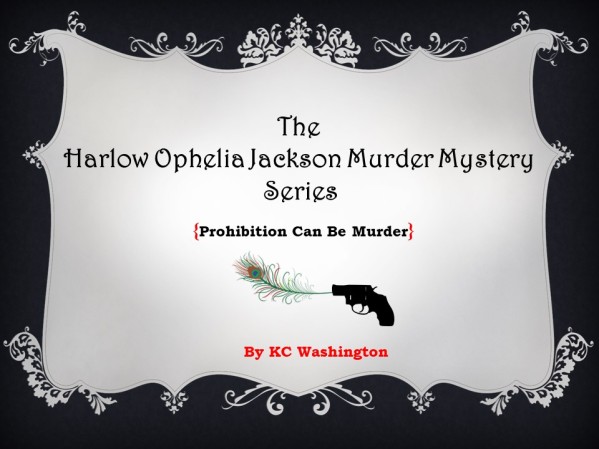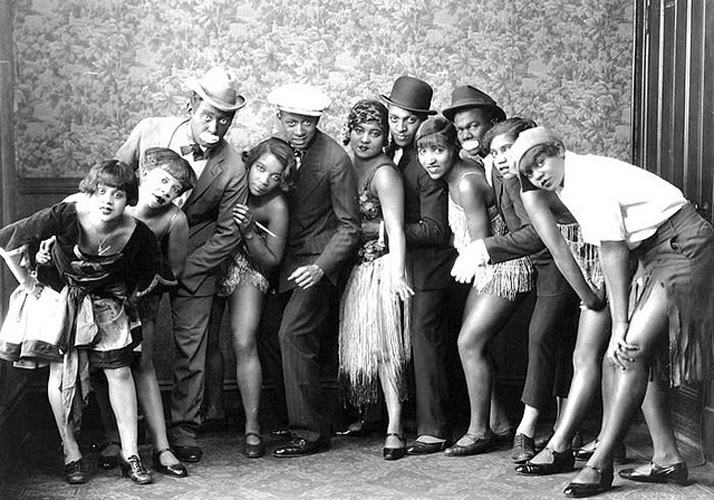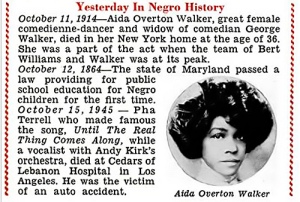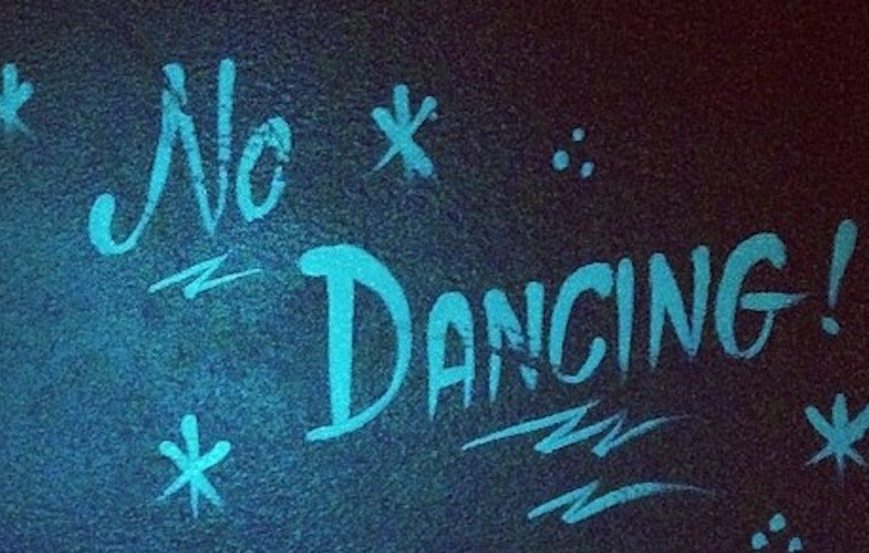
“Jiggaboos need love too!” or so the song goes. Never heard of it? That’s because the song doesn’t exist outside the world of the Harlow Ophelia Jackson Mystery series. In 1922, this plantation inspired ditty about love among the cotton bolls was a minor novelty hit for BB Smith, the hapless best friend of my main character Harlow Ophelia.
BB is a tough, resourceful woman. Orphaned at a young age, she has made her way in the world with grit, determination and the help of a few good friends like Harlow. But Harlow and the others weren’t always around and sometimes BB didn’t make the best choices. Choices that if she hadn’t gotten her act together prior to 1926 when Speaking Is Easy, the first book in the series, takes place and the Committee on Local Laws reared its ugly mug for the first time, would have landed her on the wrong side of the Committee and the police.
The things Bertha Blossom Smith got up to before settling down would most definitely have gotten her New York City Cabaret License suspended if not outright revoked. That’s if they would have even issued her one after the interrogation!
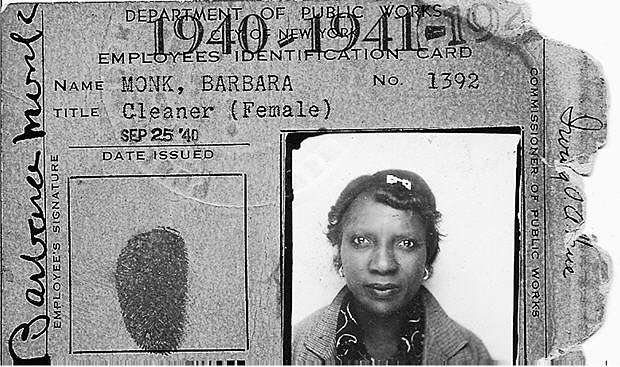
Fingerprinted just to clean the bathroom!
Like “Jiggaboos”, you may never have heard of the Committee on Local Laws or their 1920s era regulation which made it illegal for New York City bars and clubs to host musical entertainment, singing, dancing, or certain other forms of amusement without a license. It also made it illegal for three or more people to dance and in the 1940s expanded its reach to required performers and employees of cabarets to register and carry cabaret cards to perform or work in those already licensed clubs. The license was renewable every two years and entailed a trip to the precinct for an interview, photographing, and fingerprinting just to sing, dance, or play music in a nightclub!
The New York Cabaret License law may not be well known outside of New York or art circles having been overshadowed by Victorian and modern day obscenity fights spear headed by Anthony Comstock, who in 1873 created the New York Society for the Suppression of Vice which entangled the likes of Henry Miller decades later, the 1919 Volstead Act (Prohibition), and The Motion Picture Production Codes (Hays Codes), which William H. Hays created to set industry moral guidelines that were to be applied to motion pictures released by major US studios from 1930 to 1968. Although these other laws had national, far-reaching power, I would argue because of New York’s reputation as an incubator for budding artists and its history of trend-setting and sparking discourse across the country and the world, that NYC’s arbitrary, wrong-headed, and often corrupt cabaret law had nearly as much destructive power as the others. It stalled, cripple, or outright shattered the lives of hundreds if not thousands of artists such as Thelonious Monk and jazz trombonist J.J. Johnson.
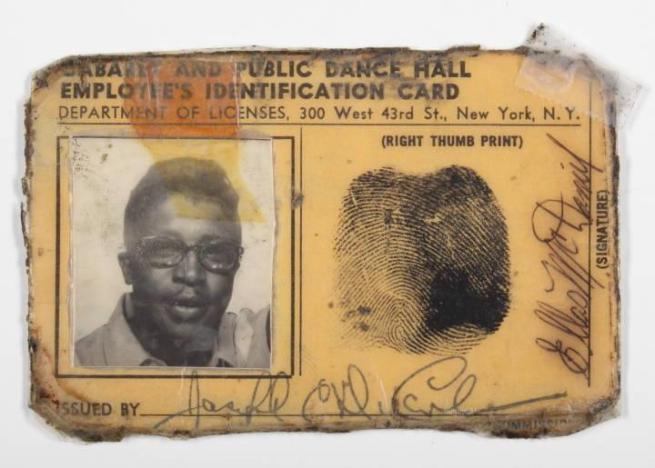
Purported to be Bo Diddley
Created six years into Prohibition, which cities like the Big Apple roared passed like a drunk careening through a stop sign, New York’s cabaret laws had been on the books for 91 years until its repeal by Mayor Bill de Blasio in 2017. Like the Volstead Act which was supposed to wipe out licentiousness and alcoholism, the cabaret law was designed to curb the excesses of the roaring twenties. Some also believe because the licensing and the punishment fell so heavily on jazz and blues clubs and therefore Jazz and Blues musicians that it was also seen as a way to stymie race mixing and possible miscegenation, you know excesses.
I imagine the goal of the powers that were, was probably a bit of both. But whatever the reason, the ability to pause or even outright destroy a musician’s career by rejecting their application or either suspending or revoking their cabaret licenses and therefore their opportunity to play in New York clubs, harmed individual performers, music, and music lovers in unfathomable ways.
Performers could be stripped of their card for anything from drug use, to foul language, to debt, to having a criminal record to being scantily clad. The very arbitrariness of the infractions left artists uncertain and fearful of how to proceed. It’s even speculated that it led to the standup comedian and recording artist Lord Buckley’s breakdown and subsequent death and the emotional and financial ruin of the legendary Charlie Parker.
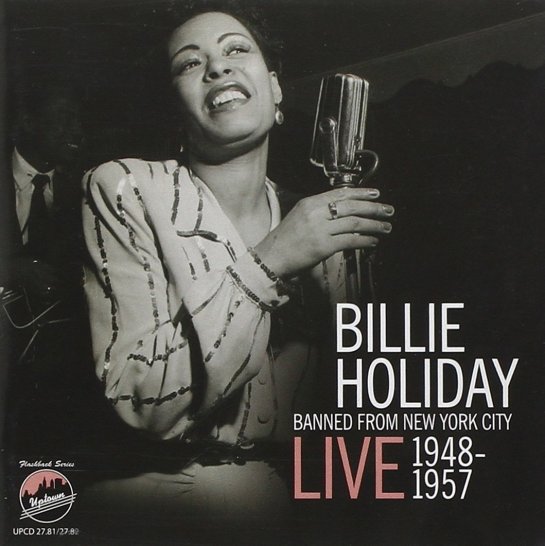
The one and only Lady Day
Like Billie Holiday, one of the most well-known victims of the law (Check out Audra McDonald in Lady Day At Emerson’s Bar and Grill), my BB is just the type of rogue character the laws were designed for. A child prodigy, BB had to put her skills to work after leaving home at the tender age of 16. By the time she landed in NYC in 1919 at age nineteen, she had one divorce, one dead husband, a child, and a raging drug habit. And although she is clean and providing for her kid by the time of the law’s passage, she is still a single mother working out of a nightclub, penning bawdy songs and running numbers.
She’s ripe for the plucking.
Cabaret licenses were designed in part to stop the unknown, the foreign, the lawless, and free, and twentieth-century America didn’t view anything in nature as more unknown, foreign, lawless, or free than the American Negro and that strange thumping, serpentine sound they invented that made one move against one’s own volition. But what was even more dangerous than the American Negro writ large? The Negro woman.
Black men are considered the primary creators of Jazz but this is a false assumption. They may have been the most visible because of sexism, misogyny, and social mores, but men were not the only originators and shapers of America’s only true original art form. There was Mamie Smith, Ethel Waters, and Ma Rainey to name a few who lent a hand, as it were. And although the copper’s dragnet by no means ensnared only Black women—it did punish those deemed to have strayed off the straight and narrow, the most vulnerable, those who couldn’t properly fight back in the courts financially because nightclubs were notoriously stingy, or they simply weren’t given their day in court and a lot of those folks were Black women and men.
Starkly stated, the NYC Cabaret Law, a law that was meant to ensure fire safety, occupancy limits, and the upright moral character of club owners endangered the livelihoods of men and women trying to make a living and provide for their families using their art.
And for those who did and would argue that having to carry a cabaret card wasn’t really that much of a hardship, think of the times. Think through to the real impact, especially on Negro performers. NYC may have been the place to be, but if one couldn’t make a living there, for White artist there were other cities, states, and venues but due to Jim Crow Black artists and other people of color playing “nonwhite” music or too dark to pass, were restricted to a handful of clubs and spaces scattered around the country, which limited exposure, contracts, and the ability to make a name for themselves.
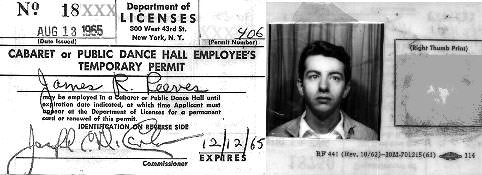
He worked hard for the money
It is well-documented that the original legislation not only banned dancing in unlicensed clubs, but also limited instruments allowed into those clubs to strings, keyboards, and electronic sound systems—leaving out jazz staples like wind, percussion, and brass. It also prohibited more than three musicians from playing at one time—provisions that heavily impacted Harlem jazz clubs and jazz bands. And naturally, law enforcement disproportionally suspended the cab cards of Black musicians because sadly most things don’t change.
People fought back of course but rarely succeeded because most didn’t have the power and clout of Frank Sinatra, who for personal reasons and in an act of solidarity with his fellow artists refused to perform in New York during some of the worst years of the law’s enforcement. Thankfully, Sinatra’s stand eventually helped get the mandatory carrying of the card dropped from the law in 1967.
Book Three of the Harlow Ophelia Jackson Mystery series has yet to be written so BB may still find herself behind the eight ball, but a funny thing that she’s sure to point out if it comes to pass, is that a country which prides itself on its much-ballyhooed belief in Life Liberty and the Pursuit of Happiness has repeatedly deployed draconian rules to hinder the life, liberty, and happiness of its artists.
{Sites used to research this piece}
https://www.local802afm.org/allegro/articles/a-brief-history-of-new-york-citys-cabaret-laws/
https://jazztimes.com/columns/the-gig/the-cabaret-card-and-jazz/
https://www.grammy.com/grammys/news/frank-sinatra-billie-holiday-new-yorks-cabaret-law-out
https://thump.vice.com/en_uk/article/z45g5e/nyc-cabaret-law-racism-discrimination-history
